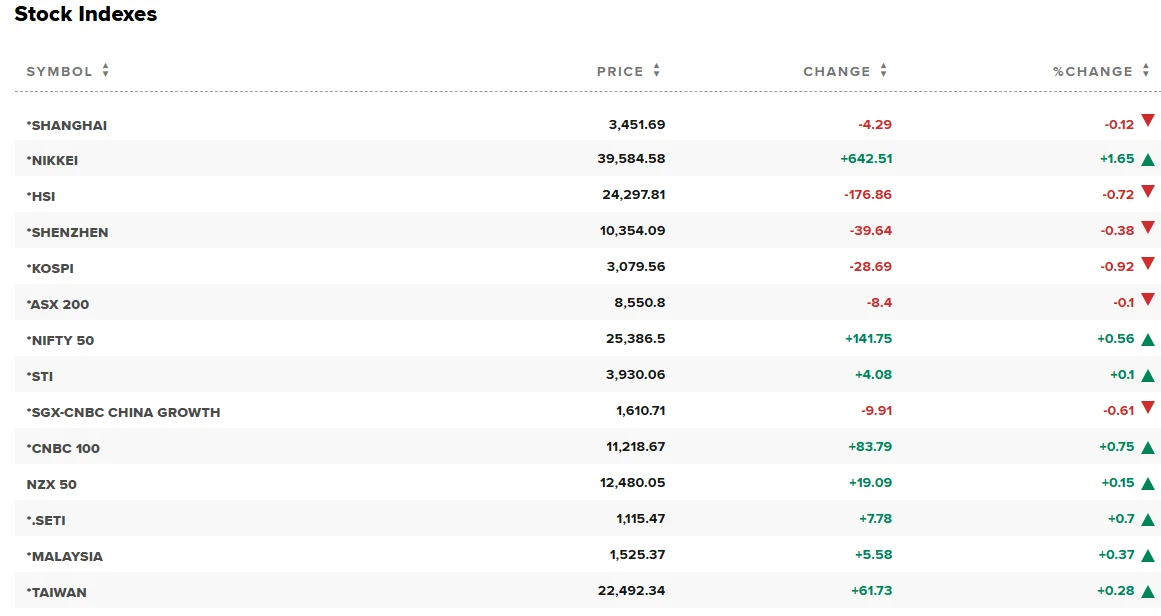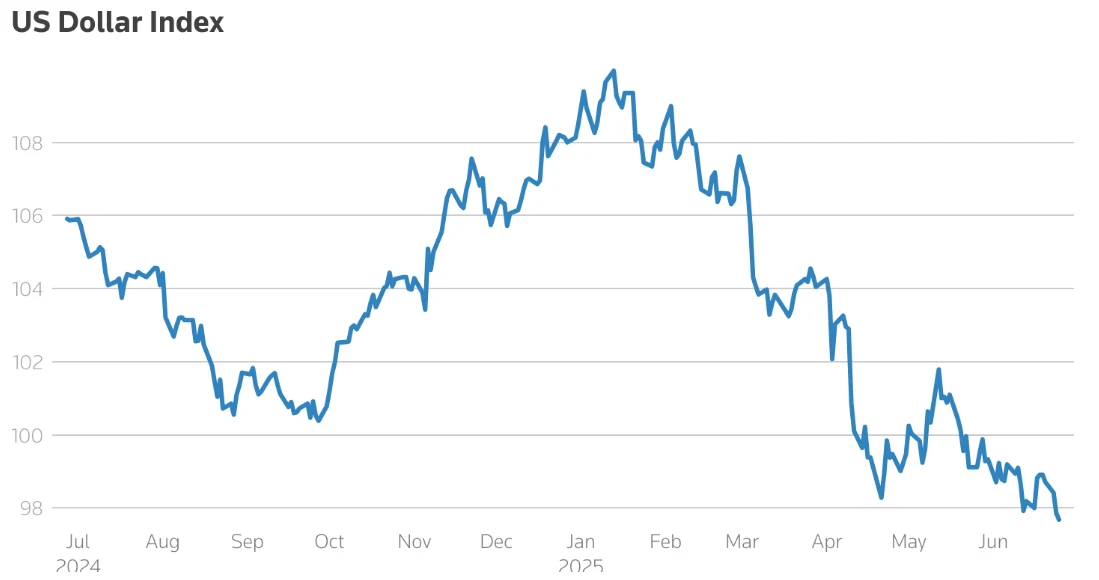Dollar Slips and Asian Stocks Hesitant Amid Trump’s Criticism of Powell
Trump's criticism of Jerome Powell, global geopolitical tensions, and concerns over upcoming tariffs have caused market uncertainty.

Quick Take
Summary is AI generated, newsroom reviewed.
Asian stocks show hesitation, and the U.S. dollar drops amidst geopolitical unrest and economic uncertainty.
The U.S. dollar slides to multi-year lows due to Trump’s remarks and worries over upcoming tariff policies.
Investors brace for more volatility as bond yields decline and oil prices hold steady amidst global tensions.
The world market is exercising a degree of caution in the wake of investors who are preparing to face possible volatility. This follows US President Donald Trump on Federal Reserve Chairman Jerome Powell and the prevailing economic jeopardies in the unfolding Israel-Iran conflict. This has brought out a strange combination of reluctance in the stock market in Asia and the steep drop in the value of the American dollar.
Asian Markets and the Impact of Global Tensions
The Asian stock market gauged through the MSCI Asia-Pacific index has been keeping a mildly bullish course. This implies the stalling of any higher gains or losses. Investors here continue monitoring new developments in the Middle East to the extent that there has been a ceasefire between Iran and Israel, even though it is temporary. Interestingly, the Japan Nikkei index gained about 1.65%, as other top stocks like Shanghai, HSI, and Shenzhen dropped by 0.12%, 0.72%, and 0.38%, respectively.

Nevertheless, investors remain cautious about whether these external events would have an influence on the overall market stability. Economic uncertainty brought in play by the prevailing geopolitical crisis and an array of other global market issues, such as monetary policy and future tariffs by the United States. This has resulted in indecisiveness in incurring new risks in the market.
The Dollar’s Decline Amid Political Pressures
One of the biggest trends seen in the world markets could be the disastrous fall of the U.S. dollar. The dollar has declined to multi-year lows of 10% against various major currencies such as the euro, Swiss franc, and yen. This can be mainly blamed on the political and economic uncertainty of Trump’s public remarks against the Federal Reserve Chairman Jerome Powell.

The comments by Trump concerning Powell and the future prospect of a further tariff agreement due on 9 July have cast doubts on the way in which the United States’ monetary policy will evolve. Such worries have forced down the dollar as the markets await the potential alteration in interest rate policies of the Federal Reserve. The euro this week turned to its highest mark since late 2021, at a range of $1.1719 to $1.1819.
Bond Markets and Oil Prices Hold Steady Amid Uncertainty
Bond markets have not been spared either, as yields on the U.S. 2-year Treasuries are declining to about 3.76%. This is in response to speculations that the Federal Reserve will start to reduce its interest rates in July, and the 25% probability of a rate cut is priced in. A fall in rates is usually a sign that investors are worried about economic growth. Traders are pricing in the possibility of easing of monetary policy to offset any adverse effects of the slowing economy.
Oil prices have been rather steady, though maintaining an average of between $67-$68 per barrel. The stability of these prices can be described by the fact that tension in the Middle East has been relieved. In that, the probability of the global oil supply chains being hampered has been minimized. Regardless of the current geopolitical instability, the oil market is not as weak as it could be due to the ideology that any meaningful production and trade disturbances could be offset in the short term.
References
Follow us on Google News
Get the latest crypto insights and updates.
Related Posts

Bitcoin Hashrate Falls Sharply as US Winter Storm Forces Mining Shutdowns
Vandit Grover
Author

Bitcoin Sudden Drop Sends Shockwaves Through the Crypto Market
Vandit Grover
Author

Hong Kong Regulator to Issue First Stablecoin Licences in March
Shweta Chakrawarty
Author